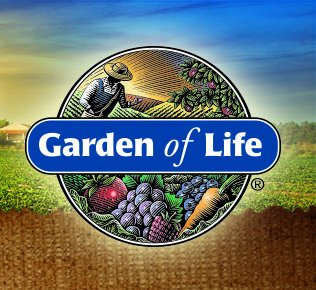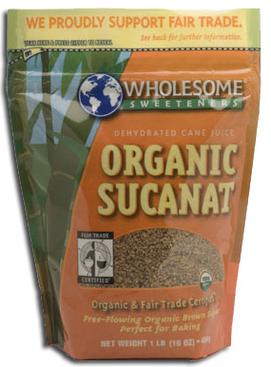1. Eat Organic, Whole Foods
This is rather basic, but very important. Whole foods are those that have undergone the least processing, but they do not have to be eaten exclusively raw.
Examples include whole grains, fresh fruits, and vegetables, grass-fed and free-range meats that are not processed into preserved meat products, and natural sweeteners.
Your system will not be clean if you continually pump it full of unhealthy foods. This does not mean you can never indulge, but it does mean that your diet should consist of at least 80 percent whole, organic foods. That way, when you do choose to indulge, your body can handle it and eliminate the toxins on its own.
| Sucanat (Photo credit: Wikipedia) |
This is a basic nutritional rule of thumb for optimal nutrition. Replace all refined or "white" foods with whole or "brown" foods. It's not the color of the food (white popcorn, for example, can be very nutritious); it's the level of refinement.
For example:
* White flour/Whole wheat flour
* White sugar/Raw, unfiltered honey, blackstrap molasses, or Sucanat (natural sugarcane)
* White rice/Brown rice
* Pasta made from refined flour/Whole grain pasta
3. Add Probiotics
These friendly bacteria are important for helping the body keep itself cleansed, and keep intestinal flora in balance. Sources include yogurt, miso (a fermented soybean paste), kefir, acidophilous milk, tempeh, kimchi (or naturally fermented sauerkraut), lactic-acid fermented pickles and other naturally fermented foods, and probiotic supplements. Many of these (like yogurt) are very easy to make at home - and contain more good bacteria than purchased sources.
4. Choose Nutrient-Dense Foods
These are foods that provide the most nutrient value for their caloric value. In other words, they are the opposite of "empty calorie" foods like candy, pop, or fried potato chips that are full of calories but lacking nutrients.
Nutrient-dense foods are not necessarily low-calorie (although they can be) - avocados and nuts are examples - but for their calories they deliver large amounts of nutrients.
5. Get Enough Fiber
High-fiber diets are essential to keeping the intestinal system clean. Fiber bulks up bowel movements, taking toxins along with it as it moves along the intestinal tract.
Healthy choices for high fiber are whole grains, including air-popped or stove-top popcorn (not microwave popcorn, as it may contain some dubious chemicals), fruits, fresh vegetables, beans, and legumes.

6. Don't Be Afraid to Supplement
The supplement debate is likely never to be resolved, but supplements are worth looking into in today's often nutrient-deficient culture.
If you are not getting enough vitamins, minerals, fiber, or probiotics from your diet - and such dietary goals can be difficult to reach - consider supplementing with a natural multivitamin, minerals, probiotics, or fiber sources (such as psyllium husks). Choose a good quality manufacturer such as Garden Of Life
7. You Are What You Drink
Do not forget to drink plenty of water! No other beverage is a good substitute for water. Regardless of what else you drink, you still need to drink plenty of water throughout the day. Add a few generous squeezes of lemon juice to your first glass of water in the morning for a liver-cleansing tonic.
Good Supplements Are Easy to Find Online:





No comments:
Post a Comment